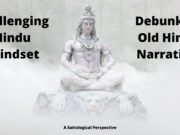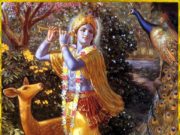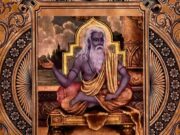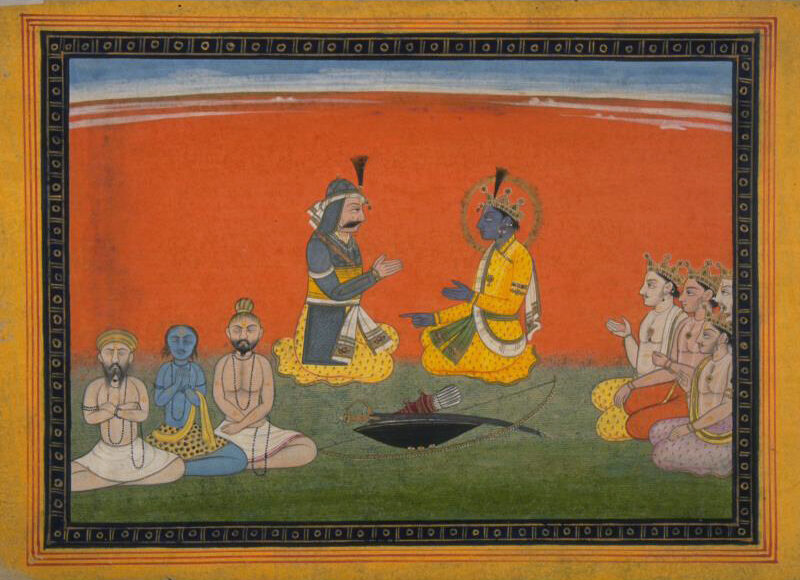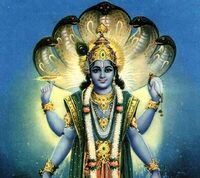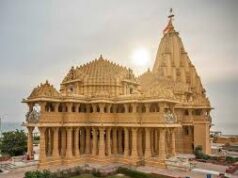India or Bharat is the home of Dharma. What does Dharma advise on this conflict? It is very interesting to note that Narada Muni, one of the twelve Mahajan or the experts on Dharma asks Yudhishthira, “Are you well prepared to take on your enemies?”. Yudhishthira replies,”Yes”. Then, Narada Muni asks him, “Are your armies always motivated and well taken care of in terms of salary & logistics?” Yudhishthira replies, “Yes”. Then, Narada Muni asks Yudhishthira, “Do you subdue your enemies when they are weak?”. Yudhishthira replies, “Yes.” Then Narada Muni advises, “One must not wait for enemies to become strong because when they are strong there is a greater effort to defeat them”. Narada Continues, “Do you honor your soldiers, who have laid down their life for you?”. Yudhishtira replies “Yes”. Narada then asks him, “Do you ensure the welfare of the family of the soldier who laid his life for your state?” Yudhisthira replies, “Yes”. Narada Muni then asks Yudhishthira, “Do you fight against adharma, wherever you see it”. Yudhishthira replies ,”Yes”.
(Excerpts from the book – The Making of a Statesman (Sattology), available on Amazon)
It is very clear that armies of a Dharmic state have to take proactive measures to protect the interests of the state.
The Head of the State is required to take preemptive measures to protect the interests of the state. It is very clear in our scriptures that any enemy that encroaches the land of a state illegally must be vanquished and taught a lesson that is unparalleled in the minds of the soldiers and public of the enemy. Dharma means justice too. The aggressor to a dharmic state must repent it’s aggression for many generations. The morality of a defendor is usually higher than the aggressor. That itself is a mental block for the morale of the aggressor. The mindset of an aggressor is very defensive. While the mindset of a defendor is very filled with patriotism for their land. That itself makes the aggressor weak. Wherever there is adharma, then it is the duty of a dharmic state to intervene and correct the anomaly.
In today’s crisis with China, India has an upper hand in dharmic point of view. The aggressor, that is, China, is occupying the land of Bharat. The whole Chinese Army that is opposing the Indian army is trying to annexe a part that always belonged to Bharat.
Tibet is Bharat’s territory also. In 1959, China occupied Tibet. Tibet is a land of Kuber, Mahadeva and many Yakshas. It has historical ties to Sanatana Dharma. If Indian Army and Political leadership of Bharat take an initiative to reclaim the whole of Tibet, that will be the biggest victory from the point of View of Sanatana Dharma. Everything is possible when we make dharma as our platform of decision making. But when we think in terms of existing material realities then we get many reasons to not follow the path of Dharma. Military Expeditions are an important aspect of Statecraft from the vedic literature point of view.
It is the duty of a dharmic state to ensure peace, liberty and prosperity of all people including those living in an adharmic state. This type of mindset ensures success for the leader of a Dharmic country.
Bharat has lost Afghanistan, Pakistan, Tibet and Bangladesh, because it’s leadership at that point of time of losing those territories did not understand dharma. Because not only, did they not understand Dharma but also, their selfish interests preceded the interests of the land of Dharma. They made policies for the ancient land of Bharat without understanding the nature of Bharat. The name Bharat (भारत) comes from Maharaja Bharat (भरत), the son of Shakuntala and Dushyant. The name Bharat (भारत) signifies the valor of Maharaja Bharat (भरत), the first Samrat as per Mahabharat. The vision of the ancestors of this great land known as Bharat (भारत), was always to ensure peace and prosperity for all. This is ensured through the destruction of all types of forces that are inimical to Dharma.
The ancestors of Bharat (भारत) ensured a strong military response to all enemies of Dharma.
Today, India stands at the crossroads of history again. Will it follow Dharma to protect the interests of all people in Occupied Tibet, Other Occupied Lands and Bharat? Will it’s Armed Forces be allowed to work for the greater interest of all people in Tibet and Bharat? That remains to be seen.
Today’s Indian Armed Forces are one of the best on the planet and especially better than it’s regional adversaries. This fact has been published by American Intelligence agencies as well as Europeans.
Is Indian leadership willing to think about the state more than their own national political objectives? It all depends on the leadership.
Just like, the outcome of Mahabharat war depended more on the determination and leadership of Yudhishthira. Everyone including Krishna, was just an advisor to Yudhishthira. It was the leadership of Yudhishthira that sealed the fate of Kauravas, the side of Adharma.
Because Yudhishira was protecting Dharma, Dharma protected him. Taking that cue, anyone can follow the path of Yudhishira and make that choice. धर्मों रक्षति रक्षितह
Disclaimer: The views expressed are personal to the author
Image Credits: Wikimedia Commons
Please donate to save our Hindu Heritage


